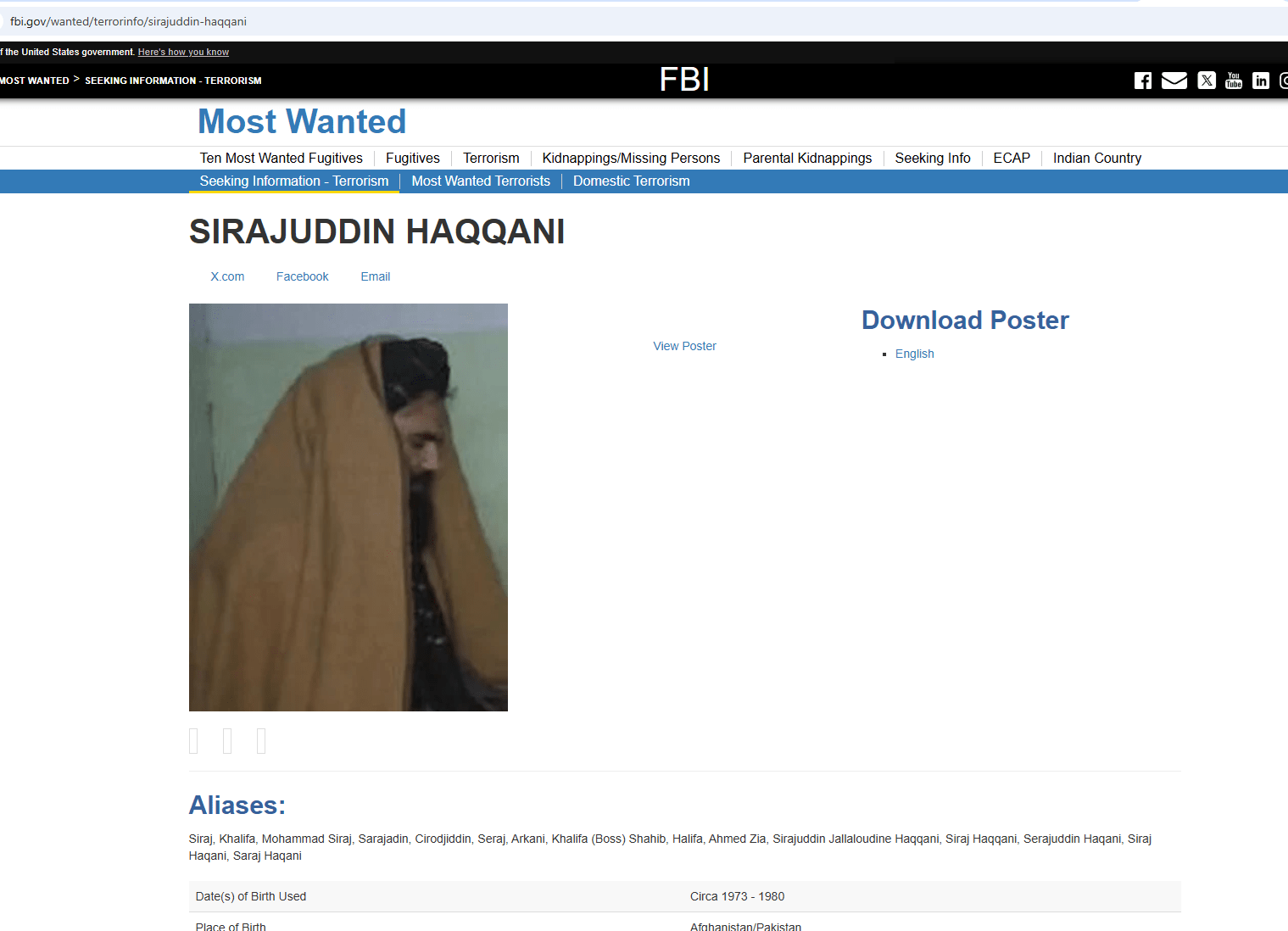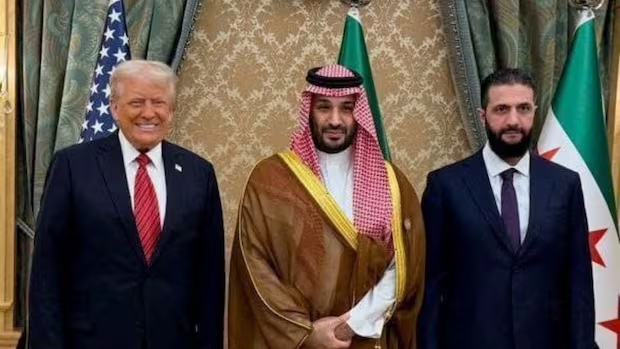Washington’s foreign policy playbook just got rewritten. Behind closed doors, America has started talking with men whose capture once warranted million-dollar rewards. This isn’t just another diplomatic tweak, it’s a fundamental reshuffling of who’s friend and who’s foe in America’s worldview.
Sirajuddin Haqqani wants to talk. Once among America’s most wanted, now he sits as the Taliban’s interior minister and reportedly seeks an open channel to Donald Trump’s White House.  This is the same man whose network turned roadside bombs into an art form. His fighters bombed embassies, attacked Afghanistan’s presidential palace, and orchestrated the bloody 2008 attack on Kabul’s Serena Hotel where American blood was spilled alongside five others.
This is the same man whose network turned roadside bombs into an art form. His fighters bombed embassies, attacked Afghanistan’s presidential palace, and orchestrated the bloody 2008 attack on Kabul’s Serena Hotel where American blood was spilled alongside five others.
Now the bounty hunters can stand down. Washington has quietly lifted the prices on the heads of three key Taliban figures—all from the notorious, Pakistan-backed Haqqani Network. Sirajuddin himself once commanded a $10 million reward through the Rewards for Justice program. Today? The money’s off the table.
Even more startling is what happened in Riyadh. Syria’s interim president Ahmed al-Sharaa—the man once known as al-Jolani when he led fighters in the brutal Syrian civil war, reportedly sat down face-to-face with President Trump. No cameras. No press releases. Just a quiet meeting between a U.S. president and a man Washington once labelled a terrorist. The Treasury Department’s move to scrub al-Sharaa from its sanctions list speaks volumes. The man whose fighters once waved the black flag of extremism is now deemed worthy of diplomatic engagement.
The Treasury Department’s move to scrub al-Sharaa from its sanctions list speaks volumes. The man whose fighters once waved the black flag of extremism is now deemed worthy of diplomatic engagement.
Many security analysts see something more calculated at work here: a return to America’s Cold War strategy of weaponizing non-state actors against geopolitical rivals.
The playbook looks eerily familiar. In the 1980s, America channeled weapons and cash to Afghan fighters, creating an insurgency that eventually helped topple the Soviet empire. The strategy worked brilliantly from a narrow military perspective, though the blowback would come years later.
Now, with Chinese economic power presenting what many in Washington view as this generation’s existential challenge, America appears to be dusting off its old asymmetric warfare tactics. Trump’s “economic patriotism” through tariffs represents just the visible, conventional front. These quiet overtures to former militants suggest something more shadowy taking shape.
Most concerning for regional stability, America’s apparent rehabilitation of the Haqqani Network signals potential renewed support for Pakistan a nation that has long played both sides of the terrorism fence. Pakistan has mastered the art of being simultaneously America’s ally and adversary. If Washington is again finding value in Pakistan’s terrorist connections, we’re headed into dangerous territory.
For China, whose massive Belt and Road Initiative cuts directly through territories where these militants once operated, the implications are ominous. Beijing has already accused Washington of supporting separatist movements in Xinjiang. These diplomatic maneuvers with former terrorist leaders will only reinforce Chinese suspicions that America is preparing proxy fighters to disrupt Chinese investments and influence across Central and South Asia.
The methods that helped win the Cold War are being reconsidered. China understands power and leverage. Sometimes that means working with people whose hands aren’t clean.
Pakistan’s spy chiefs must be celebrating this shift. For years, they treated the Haqqanis like valuable chess pieces while publicly denying any connection. Now their double game appears to be paying dividends, with Washington seemingly willing to overlook Pakistan’s long sponsorship of terrorism if it serves a larger strategic purpose.
The White House remains tight-lipped about these developments. Officially, these meetings don’t exist. The sanctions relief is buried in bureaucratic paperwork.
But in the smoke-filled rooms where real decisions get made, a calculation has clearly been made: better to bring former enemies inside the tent if they can help contain China’s rising influence. History will judge whether this gamble produces strategic advantage or simply creates tomorrow’s nightmares.

